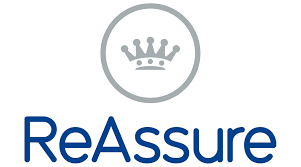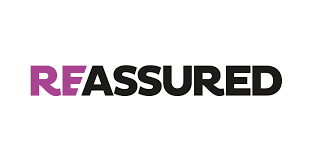Critical Illness
According to The Financial Ombudsman Service, the critical illness definition is one which is life-threatening and requires urgent medical attention for the patient to survive or one which will cause permanent and irreparable damage. Many critical illnesses have lifelong symptoms which persist after full recovery from the initial illness.
Having a good policy can protect you from many of the pitfalls of a serious injury or illness. It is often said that insurance is one of the few investments you make hoping not to use it, and this is doubly so for critical illness cover.
Search for a Company to begin a Claim
This type of cover is similar to most other insurances. Paying a monthly fee to maintain the policy will allow you to take out a lump sum if you are considered critically ill.
Often, policyholders will have a joint policy where life insurance (life assurance) is tied in with the same critical illness policy. Sometimes the policy will pay you when you’re ill, and then pay your beneficiaries when you pass away, but it’s more common that the insurance company will only give you the option to be paid one or the other.
When companies provide you with a critical illness definition, it can be difficult to understand what they mean. When they sell you the policy, they should fully explain the ins and outs of the illnesses covered and ask you about your personal situation, or they could be at risk of mis-selling their insurance policies.
What illnesses are covered by critical illness insurance?
While different insurance companies will offer different definitions for their critical illness cover, there is generally an accepted standard for most common critical and terminal illnesses and ‘dread diseases.’ Sometimes their joint policies with life cover are different from their standard critical illness in terms of illnesses covered.
This type of insurance has been around for only a few decades and generally is expanding in scope as time goes on. Initially, the first policies, known as ‘dread disease insurance’ only covered types of cancer, stroke, heart attack, and coronary bypasses. Since then, most common illnesses and diseases are covered by the terms and conditions of good insurance companies, and many have policies which allow other serious illnesses and injuries not defined by the policy to be considered by a consultancy board.
Some companies which offer critical illness cover will give you a list they claim to be industry standard. While most of those will be somewhat standard, it’s not the case that every company covers the same diseases. If you are genetically pre-disposed to certain illnesses, or your family have a history of certain conditions, it can be worth investigating which policies will cover these.
All insurers must be authorised and regulated by the Financial Conduct Authority, the FCA. This is a government body which makes sure that financial companies, such as banks, lenders and insurers are sticking to the rules.
Claiming critical illness insurance
For the vast majority of people, claiming the pay-out on their critical injury cover is a simple process. When most people make their first claim, directly to the insurance company, their claim is approved. All they need to do is provide evidence of their condition and that they can’t work due to illness. The money received will be tax-free, and can go towards medical expenses or loss of earnings.
But, there are times when the company doesn’t play ball. Not receiving the financial support you need can be a devastating blow to someone who is already suffering from a harrowing illness.
There are two common reasons why an insurer might refuse to pay out the lump sum they owe you:
- Your illness is not explicitly covered by the policy
- They don’t trust your diagnosis and require more proof
But there are many other reasons that insurers will often refuse to cough up, too. Please read these below.
If they don’t consider your injury to be severe enough to meet their critical illness definition, they will refuse to pay you what you deserve. Likewise, when they don’t trust the diagnosis you have received they won’t pay you either.
The insurers are also known for keeping payment from people when they suspect that the circumstances of the injury aren’t what they cover. For instance, many insurers won’t pay if they suspect that a person’s injury is self-inflicted, came from certain extreme sports, developed from ignoring a doctor’s advice or is due to drug abuse, alcohol abuse or smoking.
They can also deny payment if they believe that you haven’t supplied the right information at any time during the policy application, while the policy was active or during the claims process. If at any point you failed to notify them of your health conditions, changes to your health conditions then you might void the policy and not be permitted to receive funds.
These can often be very minor, though. Patients who see their doctor for most small complaints don’t think that the insurer will even want to consider these so don’t tell them. While in most cases this is true, and the insurer wishing to hear about these is not a factor, sometimes they want to save themselves some money and avoid paying – even when it’s beyond reasonable to do so.
Many of the claims they make to avoid paying you can be valid, but frequently they are all too happy to try to duck the money they need to pay out. Knowing the right tricks and having the best claims team with you will ensure that you can get the money you deserve.
While with some policies the onus is on the patient to prove that their injury or illness meets the conditions, which can be a long and challenging task, it can also sometimes rest on the shoulders of the insurer to prove that it doesn’t.
On the whole, all of these reasons for denial can be reversed. Having a good claims management team is one step in the right direction towards getting the money you are owed. Their experience and expertise in these types of claims will help you fight your cause when you’re at your most vulnerable.
Very often, the cases which are rejected are when the most money is on the line. Providers of critical illness cover will do their best to avoid paying out to customers who are owed tens of thousands, or more, as these are their most significant losses of revenue. In doing so, they are taking advantage of the trust that some of the illest or injured people have put in them over the years of their policies.






























































































































